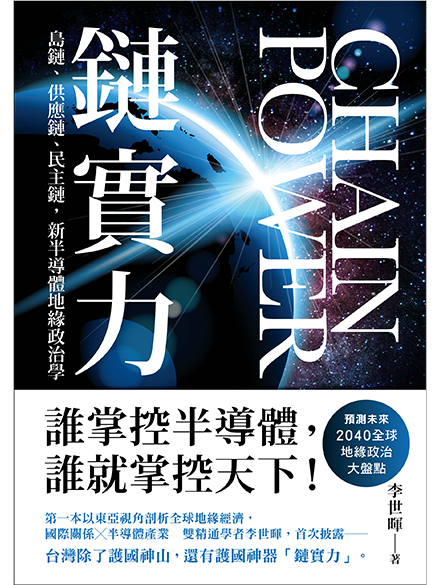An analysis of semiconductor supply chains, geopolitics, and value systems illuminates Taiwan’s irreplaceable role and impact on complex international relations.
At a moment when AI is taking off and semiconductors are rewriting geopolitics, Taiwan is receiving global attention for its pivotal role in the global semiconductor industry. Chain Power will help readers gain a timely and comprehensive understanding of how Taiwan’s position in the semiconductor supply chain, its geographical location, and the unique contribution of its democratic values has made it a key player in international geopolitics and the global economy.
Explaining historical context such as the US-China tech war along the way, the author walks the reader through current international relations, showing how Taiwanese companies such as TSMC have played a key role in making Taiwan an indispensable part of the global semiconductor supply chain. Solid geopolitical theory informs the author’s analysis of how Taiwan, a hub for Northeast and Southeast Asia, connects and affects the security and stability of these two regions. He also explains Taiwan’s immense military strategic value as part of the first island chain defense strategy. The author next discusses the Cold War to explain the ideological conflicts between the global democracy and autocratic dictatorship camps, as well as the role Taiwan’s democratic government plays in this conflict and how likely it is that Taiwan will be affected by it.
From the island chain to the supply chain to the value chain, chain power forms from intertwined links. Taiwan’s past and present have been determined by its position in the island and supply chains – accordingly, the author’s in-depth analysis of the situation playing out with Taiwan at its center will help readers to understand the current international political situation and predict future developments in East Asia. For any reader interested in technology, economics, or international relations, an understanding of chain power is vital.
